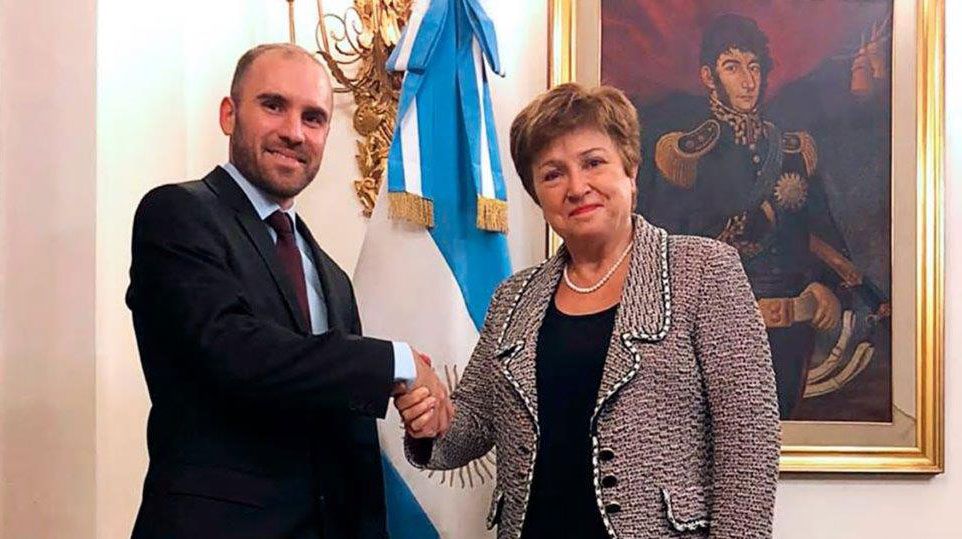RIO DE JANEIRO, BRAZIL – Amid protests, a delegation from the International Monetary Fund (IMF) began talks with the government of President Alberto Fernández in Argentina this week to discuss the potential for debt rescheduling of loans granted by the IMF.
Vice-President Cristina Fernández de Kirchner also contributed to the ongoing talks by stating that, according to the country’s laws, it would even be possible to cancel the debt altogether.
Economics Minister Martín Guzmán earlier campaigned in Congress for the future course of the IMF and also mentioned the massive debt burden. “This is a crisis in which all parties bear responsibility: Argentina, the bondholders and the IMF,” said Guzmán. The IMF, he said, is primarily responsible for the fact that the loans disbursed were not “used to increase the country’s production capacity, but rather to repay debt in an unsustainable condition and to finance the outflow of capital”. He described the troubled tone in the current negotiations with the IMF, but also with private creditors, as “unfriendly, not aggressive, but persistent”.

However, there are currently many indications that it will at least be possible to agree on a debt restructuring, in particular on a deferral of the extremely tight repayment deadlines. President Fernández said that things are running “fairly well” with the IMF. Its spokesperson Gerry Rice said that the IMF delegation was conducting a “very active and constructive discussion” with the Argentine government.
They share the goal of stabilizing the economy of the South American country. However, the institution is subject to “legal frameworks” which limit its scope. In particular, a complete elimination of debt is “not allowed”.
This was primarily in response to the reference made by Vice-President Kirchner to a paragraph in the IMF’s Articles of Agreement stating that this option did indeed exist. She drew attention to Article VI, which states that a country may not use the funds provided by the IMF “for a large or prolonged capital outflow”.
Therein lies the allegation: the IMF should have known that Mauricio Macri’s government had planned precisely such an outflow. Consequently, when the loan was granted, it would have been argued that it was an “illegitimate” operation that could result in Argentina not being required to repay its debts. The Argentinians “can read”, Kirchner said on Twitter to the IMF and its spokesperson Rice.
President Fernández agreed with his vice president on this point: This comment was “admissible”. However, a non-repayment was still not a viable option. In a radio interview with the Rivadavia radio station on Thursday, however, he spoke of a “technical default” that Argentina has been in since the end of Macri’s mandate. He said that Argentina is currently in default on debt repayments and that the country’s economy is in a “chaotic situation”.
In addition, according to newspaper reports, creditor banks and investment funds have now demanded an initial repayment of US$10 billion in cash in order for them to grant a deferral of payments. This represents virtually the total net foreign exchange reserves of the Central Bank of Argentina (BCRA), which are said to be only US$12.5 billion.
The IMF delegation will remain in the country until next Wednesday. Their visit was marked by massive protests instigated by the union “Community of Workers of the Popular Economy (Utep)”, which was only founded in December. They wanted to “follow the government’s position”, as the repayment of the full debt is “unsustainable”.
The IMF has long been aware that the South American country cannot repay its debts as originally negotiated with Macri. Its new head, Kristalina Georgieva, announced in an article on the institution’s blog in early January that she intends to pursue a less aggressive policy than that of her predecessor Christine Lagarde. With Macri, Lagarde had arranged the largest loan in the IMF’s history, thereby helping to exacerbate the chaos in Argentina. Georgieva was also generally pleased with the first measures taken by the Fernández government.
The previous Macri government had drawn down US$43 billion of the original US$57 billion granted. The money was used to repay debts in foreign currency to private creditors. This led to an even greater capital flight. The severe shortage of foreign exchange and the worryingly low reserves of the BCRA led to one of the highest inflation rates worldwide in recent months.

